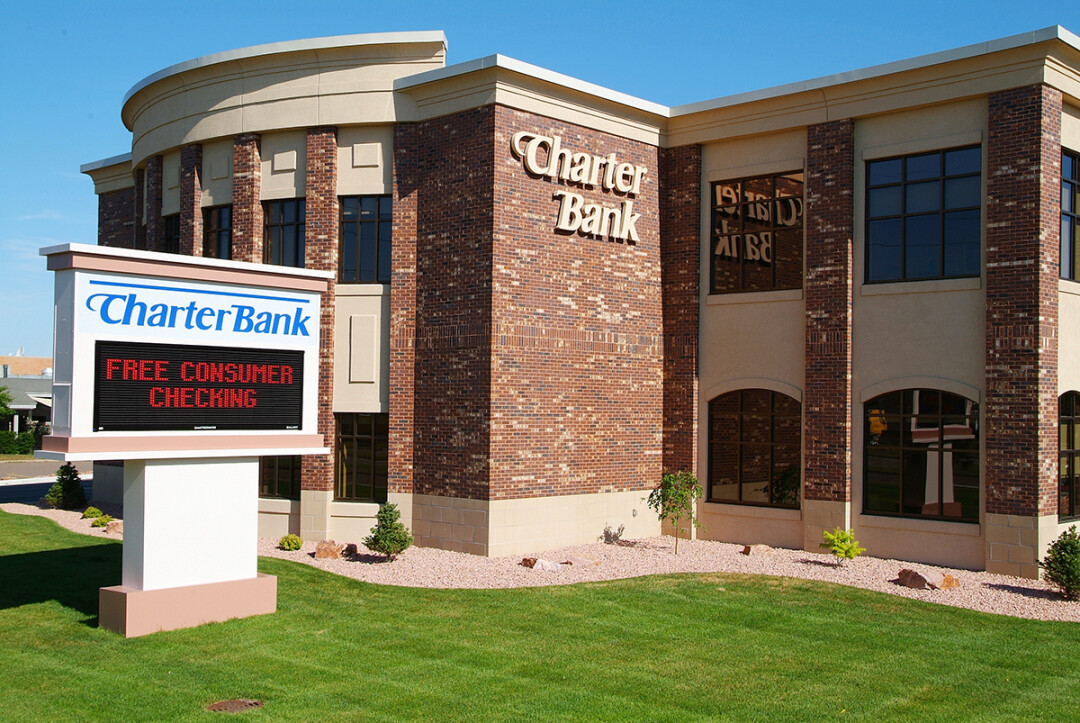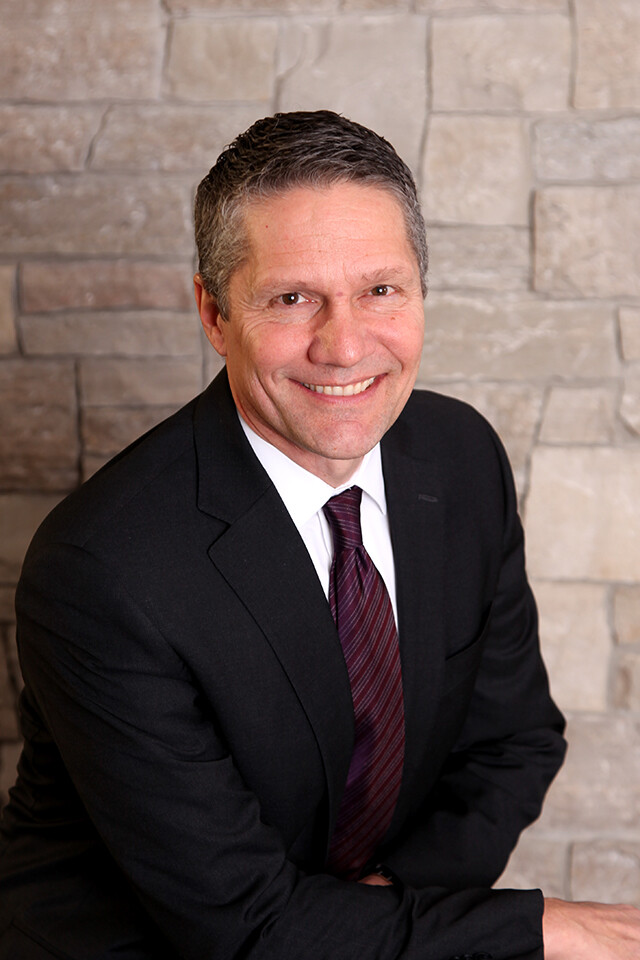Over 40 Years, Charter Bank Has Gone from Start-Up Bank to Market Leader

From its humble beginning in a temporary trailer on Clairemont Avenue nearly 40 years ago, Charter Bank has flourished to become the largest home-grown bank in the Chippewa Valley, with assets nearing the $1 billion mark. Yet, even as it has grown, Charter has focused on fostering its community roots.
“When you call here, you’re getting people – local people,” says Paul Kohler, Charter’s president and CEO. “That’s our big differentiator. Because everything is done here in Eau Claire, we can turn around things really quickly.” Charter’s bankers know the Chippewa Valley and their clients so well that lending decisions that might take weeks at institutions based outside the area may take just a few days at Charter.
“We have an extremely seasoned team, and it’s a very deep bench of lenders here,” added Kohler, who has been with Charter for 23 years, the past eight as CEO. When bankers know the community well enough, they can see customers as more than just names on a loan application. “You can give this person the benefit of the doubt,” he said. “We’re not just scoring people.”
Charter Bank primarily serves business clients, who may range from single-person startups to community mainstays with hundreds of employees. “You get exposed to so many different types of businesses,” Kohler said. “You never get bored. One day I’m working with a veterinarian, the next day I’m working with a manufacturer. The next one might be a jewelry store owner.”
Serving Businesses, Large and Small
It was exactly these kind of small businesses that Troy Johnson wanted to help build when he opened Charter Bank in 1980. At that time, the bank only had a handful of employees who worked out of a trailer on the site where Charter Bank is now headquartered. The current headquarters was completed in 2006.
Now, as it approaches its 40th anniversary, Charter Bank has 100 employees across three locations, which include its headquarters in Eau Claire and two Minnesota branches, in Chaska and Chanhassen. Charter ranks about 20th in size among the roughly 200 banks headquartered in Wisconsin, Kohler said, and last year Independent Banker magazine named it one of the 25 best-performing community banks with less than $1 billion in assets in the United States.
In addition to business banking – including commercial real estate and equipment loans, depository accounts, lines of credit, and merchant services – Charter Bank provides a full range of personal banking services. Customers have come to expect checking and money market accounts, mortgage and personal loans, and credit cards – as well as other benefits, including Charter’s annual customer appreciation party in December.
In the near future, Charter Bank plans to introduce an array of private banking services, said Carla Leuck, the bank’s assistant vice president-marketing officer. Such “concierge banking,” aimed at high net worth individuals, is uncommon among community banks, and will include services such as unsecured loans and credit cards with unique features.

Community Focused
Charter’s focus on the community goes far beyond helping individuals and businesses with their financial needs. It also involves a strong commitment to providing funding and volunteer resources for a variety of community and charitable groups. Kohler noted that Charter was one of the first financial institutions to step in to donate toward the Confluence Project: The bank’s $250,000 matching grant helped build momentum in the fundraising effort to create what is now known as the Pablo Center at the Confluence, which opened last fall. In March, Charter donated $125,000 to Feed My People Food Bank to help with its expansion effort. And just last month, Charter pledged $400,000 to HSHS Sacred Heart and St. Joseph’s hospitals for a mobile mammography unit, which will help women in rural areas around the region receive potentially life-saving screenings.
For Kohler, it comes back to creating strong community partnerships. “Every great community needs great small businesses, and those small businesses need a great community bank,” he said.



